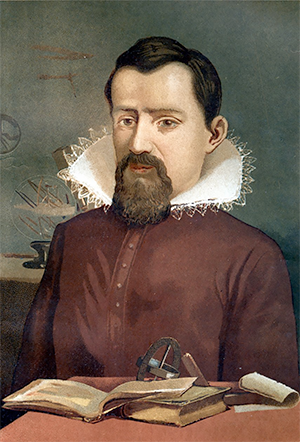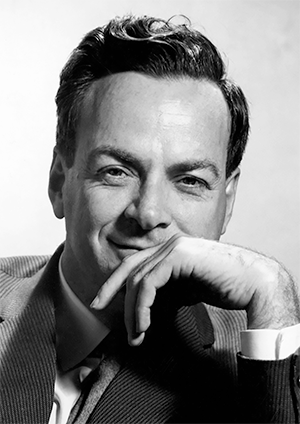From Faith to Skepticism: The Evolution of Religious Belief Among Scientists
Throughout the history of Western science, there has been a profound shift in the religious views held by many of its leading figures. While early scientists were often deeply religious—frequently Christians who viewed their work as a form of worship—modern science has increasingly been shaped by agnosticism, secularism, and atheism. This transformation did not occur in a single moment but unfolded gradually over centuries, influenced by intellectual, cultural, and scientific developments. The movement from Christian belief to skepticism among many scientists reflects broader shifts in society’s understanding of knowledge, authority, and the natural world. It may also be said to betray the growing hubris of some scientists who are coming to believe that man and science can explain everything.
Science in a Religious World: The Foundations
In the medieval and early modern periods, science—then known as "natural philosophy"—was largely pursued within a religious framework. Many early scientists were devout Christians who saw the study of nature as a means of glorifying God and understanding His creation.
Figures such as Isaac Newton, Johannes Kepler, and Galileo Galilei believed that the universe was the product of divine design, and that its laws were a reflection of God's rationality. Even amid conflict—such as Galileo’s condemnation by the Catholic Church—science and religion were not necessarily seen as opposing forces. Instead, they were often interwoven, with scientific inquiry operating under the larger umbrella of theological assumptions.The Scientific Revolution and the Rise of Natural Law
The Scientific Revolution of the 16th and 17th centuries marked a critical turning point. As scholars developed empirical methods based on observation, experimentation, and mathematical reasoning, they began to uncover natural laws that governed motion, astronomy, and other phenomena. The work of Copernicus, Newton, and others revealed a universe that operated according to consistent principles—principles that did not require ongoing divine intervention to function. While many scientists of this era remained religious, the increasing power of naturalistic explanations began to shift the intellectual ground. The rise of Deism, which posited a distant Creator who set the universe in motion but did not intervene in its operation, reflected this transition. For many Enlightenment thinkers, God remained a plausible hypothesis—but no longer a necessary one for understanding nature. Yet others, recognized that the presence of precise, natural laws pointed toward the existence of a "law-giver."
The Enlightenment and the Growth of Skepticism
By the 18th century, the Enlightenment ushered in a period of profound skepticism toward religious authority. Thinkers such as Voltaire, David Hume, and Baron d’Holbach championed reason, critical inquiry, and secular ethics. They challenged traditional doctrines and emphasized the autonomy of human intellect. While not all Enlightenment figures rejected religion outright, the period saw the erosion of theological explanations in public and intellectual life. Scientific inquiry increasingly distanced itself from ecclesiastical oversight and began to be seen as an independent path to truth.
Darwin and the Crisis of Faith
The publication of Charles Darwin’s On the Origin of Species in 1859 marked another watershed moment. By proposing a theory of evolution through natural selection, Darwin offered a powerful explanation for the diversity of life that did not rely on supernatural creation. His work challenged literal interpretations of the Bible, especially the Genesis account of creation. For many scientists and intellectuals, this marked a turning point in the relationship between science and religion. While some sought to reconcile evolution with religious belief, others—like Darwin's contemporary Thomas Huxley—embraced agnosticism, a term Huxley himself coined. Evolution not only undermined specific religious doctrines but also reinforced the idea that natural processes alone could account for the complexity of life.
The 20th Century: Secularization of Science
In the 20th century, advances in physics, cosmology, biology, and psychology continued to widen the gap in some peoples minds between scientific knowledge and religious belief. Discoveries in quantum mechanics and relativity challenged older worldviews, while new understandings of the brain and mind questioned the notion of a divine soul. Thinkers such as Sigmund Freud and Friedrich Nietzsche further undermined the psychological and moral foundations of religion. After the devastation of the World Wars, many intellectuals turned toward existentialism and secular humanism as alternative frameworks for meaning.
Prominent scientists like Richard Feynman, Carl Sagan, and Stephen Hawking articulated views that were agnostic or atheist, emphasizing wonder at the universe without invoking a divine being. The authority of religious explanations continued to diminish in academic and scientific circles, especially in the West. By the late 20th century, surveys revealed that a significant proportion of scientists, particularly in the physical and biological sciences, identified as nonreligious.
The Present Day: Diversity of Belief
Today, the religious views of scientists are diverse. While many identify as atheists or agnostics, others maintain religious or spiritual beliefs. What unites the modern scientific community is not a shared theology or lack thereof, but a shared commitment to empirical evidence, critical thinking, and methodological naturalism—the principle that science seeks natural explanations for natural phenomena. This methodological approach does not affirm or deny the existence of God but operates independently of religious assumptions.
Nevertheless, the historical arc is clear: over the past several centuries, as the explanatory power of science has grown, the necessity of religious belief among scientists has declined. The shift from belief to skepticism among many in the scientific community reflects not a rejection of meaning or morality, but a reorientation of where such meaning is sought and how knowledge is justified.
The transformation of religious belief among scientists from predominantly Christian to increasingly agnostic or atheist is one of the most significant cultural developments in modern history. While often attributed to the cumulative effect of scientific discovery, it has in many parts become driven by hostility to religion. As science has seemed to provide ever more comprehensive explanations of the natural world, many scientists believe that the need for supernatural explanations has diminished. While personal belief remains a private matter, the story of science's evolution is also a story of humanity’s ongoing quest to understand its place in the cosmos: once through faith and scripture, and now through the lens of reason and evidence. The pursuit of truth through solely human efforts may well harken back to the lessons left unlearned at the Tower of Babel. (Genesis 11:1-9)

